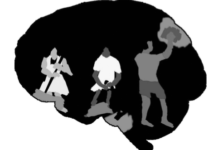by Abhishek Kaul
What does the term “education” mean? Does it mean teaching someone how to live? Perhaps it means being job-ready?
Every person comes into the education system with their own definition and expectations of what to expect. It can be anything from enabling the pursuit of a passion to securing a ticket to a cozy desk job.
In my eyes, education should be closer to the impartation of knowledge and wisdom rather than the impartation of the skills necessary to thrive financially.
Each day that passes seems to bring more news of the growing gap between the rich and the poor. I come from a middle class family and I understand, at least in part, the pressure that comes with having to finding a path to financial security.
I’ve made the choice to go down this path myself, so by no means do I feel that education is useless towards achieving that goal; however, looking at it idealistically, I believe that this system is completely broken. What should be an exchange of opinions, ideas, and knowledge is overshadowed by constant undercurrents of career, financial, and materialistic success.
It’s rare that I come across curiosity for curiosity’s sake nowadays.
Despite having this curiosity myself, I constantly feel blocked when I try to let it out.
For example, I find all of the classes I’ve been taking to be very interesting, but I don’t get much of an opportunity to deeply explore the content because of the constant threat of examination.
In the pressure to “grind” it out and slog through to conform precisely to what and how you are expected to learn, curiosity dissolves into a luxury. This leads me to ask the following: why can’t we be content to teach and learn without having to resort to proving we know what we are expected to know?
The answer I have (so far) is that the education system runs on competition, just like the rest of the world. I am reminded of a TEDxUW talk by Hamid Tizhoosh where he talked about the omnipresent “ranking mentality.” We live life comparing every single aspect of our life to the lives of those around us. While it has helped us survive and evolve to this point, it feels far too superficial for a construct of human intelligence, such as knowledge.
It is not the same to rank berries by potential harm levels and to rank how well students can learn based on teachers’ expectations. The competition that’s generated by testing completely shatters what should be an opportunity to learn without having to study in a particular way.
The education system and academic world at large are streamlined for a very specific set of people: those who enjoy the process of studying and hustling.
I, on the other hand, have a hard time with this simply because I enjoy learning new things. On the surface, this may seem like the same thing, but it results in cognitive dissonance from feeling pinned down by focusing on very specific subject matter all of the time.
As someone who is interested in everything from philosophy and psychology to technology and poetry, being put under pressure to learn on someone else’s terms does not feel like the right way to learn, yet it feels like it is the only way to get my degree. It feels like we’ve come to silently accept a system which apathetically watches us become moulds of their creation.
Not all people may not enjoy knowledge in the same way I do, but it is certainly not right to be made to feel insignificant and pained in the pursuit of something as wonderful as curiosity.
































